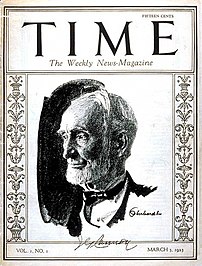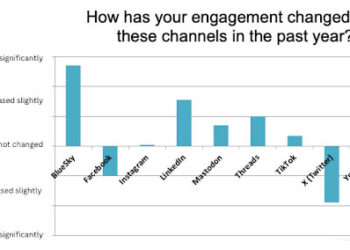
- Image via Wikipedia
You’re reading a blog. Don’t you know what that means?!
It means you’re killing a newspaper!
At least that’s how the newspaper industry sees it. In a strange string of opinion pieces, the following proposals have been made:
- Stu Bykofsky of the Philadelphia Daily News thinks newspapers should (violate anti-trust laws and) mutually agree to put all their content behind the firewall.
- David Swensen and Michael Schmidt, writing in the New York Times, think newspapers should become endowed institutions since they can’t make enough money to support themselves otherwise in the digital age.
- Walt Isaacson, writing in TIME magazine, thinks newspapers should revisit the 1990s idea of micropayments for content.
In every case, the essayist has the blame pointed in the wrong direction. Instead of acknowledging that newspapers are repeating the same error the railroads did at the end of the 19th century (by forgetting what business they’re in, and instead deifying the object that has traditionally represented their business — transportation vs. trains, news vs. papers), these essayists are blaming the freeloading reader, the echoing blogger, the exploitative search engine.
Wah! As Bill Wyman on Hitsville writes, when newspapers had a virtual monopoly on the daily distribution game, they made millions or billions selling advertising. In fact, subscription rates covered very little of the overall expenses, and probably accounted for little income. Advertisers were beholden to newspapers, and readers wanted the ads, too. Now, however:
the biggest problem the press has is that the evaporation of advertising has meant that the news it publishes has to stand on its own two feet.
And the fact is, it probably can’t, not carrying the costs of newsprint, a trucking system, and a large building. And not with the large amount of redundancy in the system (talk about your echoing bloggers — have you ever considered the echoes generated by wire services?). Scott Karp’s Publish2 initiative is working to show how efficient news gathering, dissemination, and localization can be in the networked age. The New York Times, despite what’s on their editorial page, seems to get it, as well, recently exposing 2.8 million articles via an API.
If the newspapers were thinking proactively instead of blaming their readers or asking to be sheltered like the relics they are becoming or resurrecting discarded payment schemes, they might avoid the fate of the railroads — devolving from a mainstream American businesses into niche products struggling for relevancy.
Discussion
1 Thought on "You’re Murdering a Newspaper!"
![Reblog this post [with Zemanta]](http://img.zemanta.com/reblog_e.png?x-id=6d96cbd3-0d74-47da-9d70-8743ee04d503)


